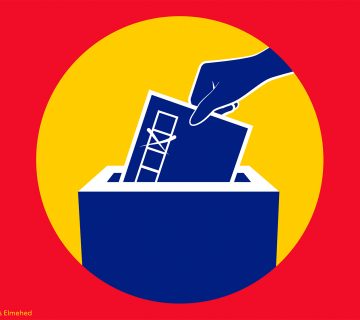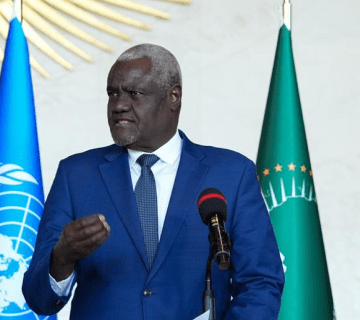President Yoweri Museveni, who took power in 1986 at the helm of a National Resistance Army-led rebellion against then President Milton Obote, has firmed his grip on power in Uganda this year. In December 2017, Uganda’s Parliament voted on a bill to lift the age limit for the presidency, allowing Museveni to finish his fifth term as president in 2021. In the run-up to this vote, opposition politicians were arrested, intimidated, and some even attacked inside a government building.
In September 2018, the repressive nature of Ugandan politics once again found the spotlight. Parliamentarian and musician, Robert Kyagulanyi, better known by his stage name, Bobi Wine, was court-marshalled, detained, and allegedly tortured by the government. Wine went to the United States in September to receive treatment for the injuries he allegedly sustained while in custody. Wine promises to bring new energy to those resisting the status quo, particularly youth.
In September and October 2018, Museveni has repeatedly attacked non-governmental organizations, international media, and the UN, calling the UN ‘useless’ and claiming that it had preserved terrorists in the DR Congo. The verbal attack was additionally directed to the United States and the United Kingdom following their strong stand against the harassment of opposition MPs by the government.
Many Ugandans are currently living in fear and panic following continued assassination of prominent figures, such as former government critic and police commander Muhammad Kirumira. Attacks on journalists and opposition MPs by security agents are also common.Kirumirawas believed to be against the establishment, and his assassination is believed to be the result of his position in this regard.
The situation of political uncertainty and repressiveness, combined with the growing number of Uganda’s frustrated youth, and the presence of a young charismatic influencer like Wine, creates a new challenge for the 74-year old Museveni that resultsfrom structural pressures visible throughout the African continent. One of these structural pressures is the presence of large youthful populations living in poverty. Around 70 per cent of Ugandans are aged below 24 years old, and 21.4 per cent of all Ugandans live below the poverty line. Poverty is often exacerbated by unequal access to resources by ethnic, religious, or social groups, which in turn might create grievances, and even result in violence.
Popular discontent has been growing over President Museveni’s apparent desire to remain in power while governance, economic performance, and the security situation deteriorate. The lack of effective governance stymies attempts to improve core services such as infrastructure and agriculture, which are under pressure from a rapid increasing population. In 2015, the World Bank announced the cancellation of funding to the Uganda Transport Sector Development (TSDP)due to contractual breaches related to workers’ issues, social and environmental concerns, poor project performance, and serious allegations of sexual misconduct and abuse by contractor staff.
To that end, Uganda has increasingly looked to China for funding. Museveni has praised Uganda’s relations with China in his state of the nation address on September 9, 2018, that lasted nearly four hours. He praised Chinese President Xi Jinping and mentioned China at least seven times, more than any other country mentioned during the address. Uganda’s increasingly close relation with China is partly due to China’s unrivalled willingness to avail unconditional capital to Africa.
Uganda urgently needs political and administrative reforms to prevent it from sliding toward an increasingly dysfunctional, corrupt and insecure country. Although not unstable yet, Uganda is seemingly on a slippery slope towards instability. Only rapid, sustained, and inclusive development can reduce political, social, and economic pressures that can potentially lead to violence. Good leadership that is accountable to its citizens will be crucial in the coming years.



